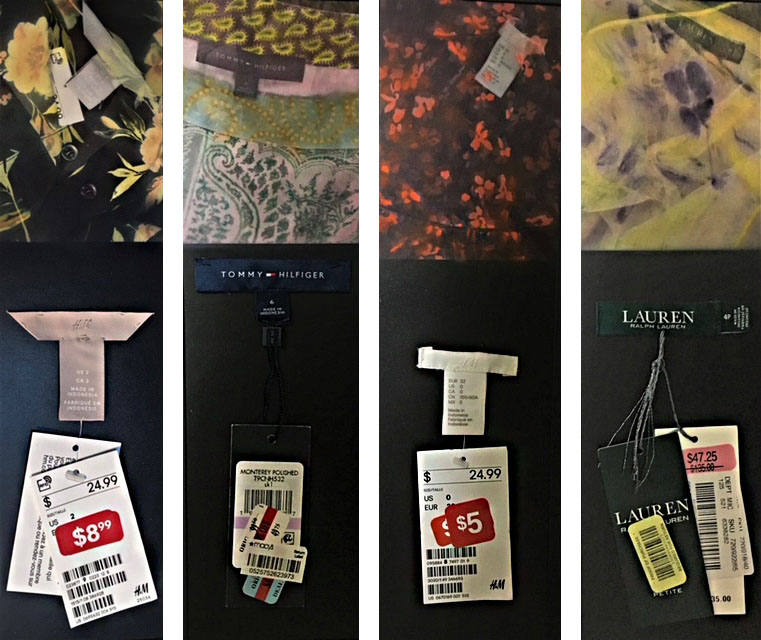Shopping for Bargains, Indonesia
In 2019, I read an article by Ken Silverstein in The New Republic, outlining the practices of clothing factories in Indonesia set up by U.S. and European companies. Designers such as Ralph Lauren and companies such as H&M were cited. Indonesia, a country with an anti-union history, allowed payment of the lowest possible wages to seamstresses working long hours with few rights in conditions much like those of the United States in the early 1900s.

These companies anticipate "bargain shopping." Knowing that shoppers wait for sales, companies underpay workers to cover reduced prices. As if that weren't bad enough, these companies also abandon their factories without warning, leaving behind workers who haven't been paid for weeks (wage theft).
My photo collages are a record of "bargain hunting," something many of us do. Prices fell, in some cases, from $125 to $35, a price that barely covers the cost of materials (fabric, thread, etc.). The company made up those losses with low wages and wage theft. This is how U.S. industry behaves in the "third world." Shoppers, blind to these realities, are seduced by a "brand name" and a reduced price, with no thought for the lives of the seamstresses who made them.
Kathy Vargas is currently professor of art/photography at the University of the Incarnate Word in San Antonio, Texas.